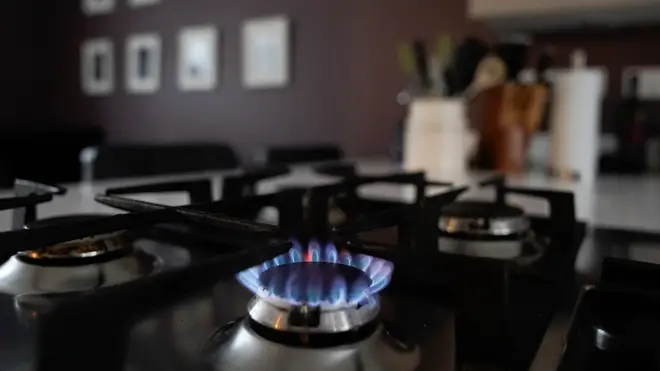
Tom Swarbrick 4pm - 6pm
26 August 2022, 00:04

The price cap is expected to reach between £3,550 and £3,600 in October.
Families across Great Britain will find out on Friday how tough energy bills will be this winter but they may have to wait to discover what the Government will do to help.
Around 24 million households are set to be told that their energy bills will rise by around 80% from the start of October.
The average household will pay somewhere between £3,550 to £3,600 according to predictions from consultancies Cornwall Insight and Auxilione.
This is approximately £2,300 more than a year earlier.

It is likely to be a nervous wait between Friday when Ofgem announces the new cap and September 5, when the new prime minister takes office.
As they wait for Government help, many will try to reduce bills by keeping their homes colder, cooking in bulk and taking shorter and less regular showers.
Experts also say that turning down the flow temperature on your boiler and switching off your boiler’s pre-heat mode can save hundreds of pounds this winter.
But such savings are likely to offset only a small proportion of the mammoth price cap.
Families will have to come up with the money somehow, or face winter living in the cold. Around 45 million people in the UK could be thrown into fuel poverty as a result, according to a study from the University of York.
Rocio Concha, the director of policy and advocacy for Which?, said that six in 10 households are cutting back on essentials or dipping into savings, even ahead of the bill rises.
It “reinforces the need to urgently deal with this crisis before many more families are pushed into the difficult choice between heating or eating”, she said.
“The Government must move quickly to increase the amount of financial support it is providing to help households make ends meet and work with businesses to look at what more they can do for those facing serious financial hardship.”
What support might be put in place depends on who becomes prime minister.
Frontrunner Liz Truss has said that she might remove the £400 support from higher earning households.
She has also hinted at removing the existing windfall tax on energy firms, which was introduced in May by her rival, Rishi Sunak.
She insists that National Insurance tax cuts can help, and promised to ensure the UK starts producing more North Sea energy.
She has also promised to slash green levies on energy bills, and hinted at targeted support for the most vulnerable households.
Mr Sunak has said that her plans will tip millions into destitution, and her pledge to cut National Insurance payments will save people £1 a week and do nothing for households.
The former chancellor has announced an extra £10 billion to help people with their bills.
A Sunak government would temporarily scrap VAT payments on domestic fuel use, taking £200 off the average bill, while it would funnel an extra £5 billion to the most vulnerable.
However, Labour says this is not enough to cover the massive rises. Both Labour and the Liberal Democrats have called for a prize freeze at just under £2,000.
Several energy companies have suggested similar ideas – using bank loans to keep the cap at current levels.
Ofgem decides the price cap by observing what wholesale energy prices do over several months.
It then multiplies this price per unit by the number of units of gas and electricity that an average household uses in a year.
To this it adds several charges. These include VAT, green and social levies, charges paid to the energy networks, and a small amount of profit.
The cap is designed to limit the amount of profit that an energy supplier can take. It does not limit the profits of the companies that sell the same energy to that supplier.
Based on Wednesday’s gas prices, experts at consultancy Auxilione think the cap will reach £5,210 in January 2023 and £6,823 in April.
Then it will fall, but only to £6,106 in July and £5,668 next October.